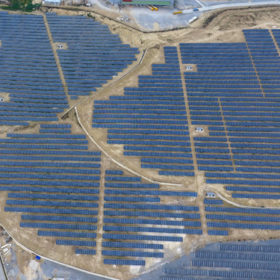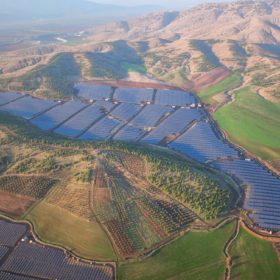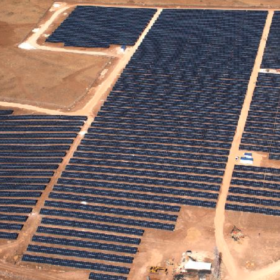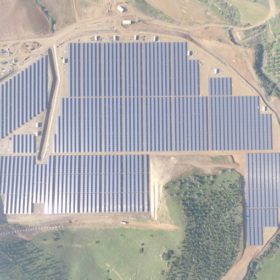Turkey: 20 MW of new licensed PV capacity connects to the grid
Asunim Turkey has built and grid connected two new solar farms, thus boosting Turkey’s licensed PV market.
Akfen Renewable Energies to receive $363 million loan for PV & wind projects
Turkey’s Akfen Renewable Energies this week signed a new $363 million loan with six international and Turkish banks, to build 327 MW of new solar and wind power capacity.
Turkey to launch 1 GW PV tender in January
Strong local content requirements may be embedded in the tender, according to the first draft of its rules, with selected projects required to rely on a 60% quota of modules made in Turkey. A 30 MW/ 90 MWh (AC) storage project will also be included at one of the three sites identified for the tender.
Akfen Renewables secures $52 million for 85 MW of PV in Turkey
Overall, the Turkish renewable energy company secured funds in the amount of €102 million, a sum that will be invested in wind and solar projects with a combined capacity of 327 MW. The lender was the European Bank for Reconstruction and Development (EBRD).
Mixed reaction from solar industry to plunging Turkish currency
As the lira’s troubles continued to weigh on the markets today, it remained unclear how the country’s solar market will be affected. While the plunging currency fosters uncertainty – public enemy number one for investors – it could also create conditions for lower system costs and cheaper PV projects. Nevertheless, a serious slow-down for 2018 must be considered.
Turkey: 30 MW of licensed capacity under construction
Turkey has tendered 600 MW of PV capacity, very little of which has been installed to date. A new 30 MW solar PV project, however, is currently under construction.
Panasonic completes 11.7 MW HIT module PV plant in Turkey
High-efficiency module manufacturer, Panasonic announced it had completed what it says is the world’s largest project using its HIT solar modules, in Turkey.
Turkey’s Smart Energy talks quality and customer proximity – Video interview
Turkish EPC and module manufacturer, Smart Energy highlighted the importance of high-quality products and the perks of operating a giga-fab right at the gates of Europe to pv magazine at this year’s Intersolar Europe.
Turkey authorizes foreign-currency loans for already approved unlicensed PV projects
The measure is intended to reduce domestic foreign exchange exposure for investors and developers of PV projects up to 1 MW (and solar parks consisting of several 1 MW units). Prior to these new rules, only licensed PV projects exceeding 1 MW in size were granted this kind of financing.
Turkey: ‘Localisation’ trend dominates the energy sector
Turkey is going to the polls on Sunday, and many wonder whether president Recep Tayyip Erdoğan’s gamble on a snap election could backfire. Unless there is a shock at the ballot box though, the nation’s energy sector trends are unlikely to be challenged.






